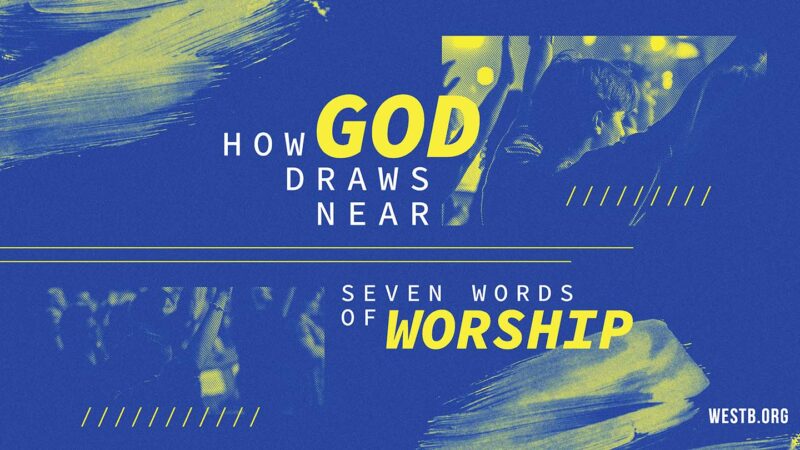How God Draws Near : The Seven Words of Worship: Awe
Series: How God Draws Near : The Seven Words of Worship
Sermon Title: Awe
Speaker: Sam Rainer
Date: February 23,, 2025
Reflect
- What is a place or experience that left you in complete awe?
- (Examples: A beautiful landscape, a powerful storm, the birth of a child, etc.)
- What is something you once thought was “awesome” as a kid but now see differently as an adult?
- (Examples: A roller coaster that used to be thrilling but now seems terrifying, or a celebrity you idolized.)
Encounter
- Read Psalm 33:6-15. What do these verses say about God’s power? How does creation itself reflect God’s authority?
- Look at Acts 2:43—Why do you think awe was such a strong reaction among the early Christians? How do signs and wonders reinforce our understanding of God’s power?
- In Luke 5:26, people respond with awe after Jesus heals and forgives a paralyzed man. What does this show about Jesus’ authority beyond just physical healing?
Transform
- How can you cultivate a greater sense of awe in your daily life? What spiritual practices help you recognize God’s majesty?
- What are some ways our church community can grow in awe of God together? How does worship (in its various forms) deepen our reverence for Him?
Additional Discussion Questions
- How does the concept of “creativity revealing God’s existence” challenge the way we engage with art, music, and innovation in the world?
- What are some dangers of creativity that is detached from God? How have you seen creativity used in ways that either honor or distort His design?
- The sermon mentions that “the worst art is that which denies the Artist.” How do you interpret that statement? How should this affect our approach to creativity and worship?
Interesting Facts and Tidbits
- The Hebrew and Greek words for awe often overlap with “fear”—but in a way that emphasizes reverence rather than terror. The Greek word phobos (often translated “fear”) actually carries a meaning of being filled with awe rather than simply being afraid.
- Psalm 119:120 combines fear and awe: “I tremble in fear of you; I stand in awe of your regulations.” This shows that true reverence for God comes with both humility and wonder.
- Jim Elliot’s perspective on awe: The missionary Jim Elliot once wrote, “The Lord made mountains to climb, not just to look at.” This reflects the idea that we are meant to experience God’s presence, not just admire it from afar.
Related Passages
- Exodus 3:6 – Moses hides his face when God appears in the burning bush.
- This shows how encountering God’s holiness naturally produces awe and humility.
- Isaiah 6:5 – Isaiah’s response to seeing the Lord: “Woe is me, I am ruined!”
- This illustrates how an encounter with God’s glory reveals our unworthiness but also His grace.
- Acts 9:3-6 – Paul’s dramatic conversion on the road to Damascus.
- Another example of someone literally being stopped in their tracks by God’s power, leading to transformation.
- Luke 9:43 – After Jesus heals a demon-possessed boy, “awe gripped the people.”
- Awe is often a reaction to witnessing God’s power firsthand.
- Acts 2:43 – “A deep sense of awe came over them all.”
- Awe was a defining characteristic of the early church, demonstrating God’s presence in their community.
- Psalm 19:1-4 – “The heavens declare the glory of God; the skies proclaim the work of his hands.”
- Nature itself speaks to the awe-inspiring power of God.
- Job 38-41 – God’s speech to Job about creation.
- This passage is filled with rhetorical questions that showcase God’s limitless power and wisdom.

